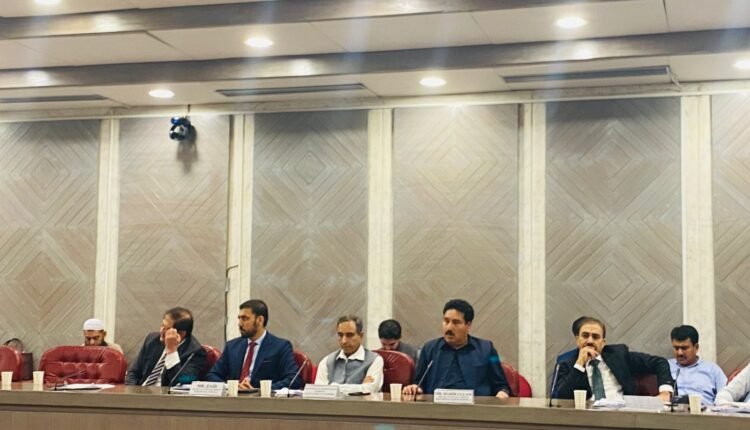Silent Deforestation in Gilgit-Baltistan Three Decades, Four Million Cubic Feet
Natural cover is rapidly declining due to sectarian violence and reliance on timber.
A report presented during the National Assembly’s Standing Committee on Climate Change has revealed that nearly 4 million cubic feet of timber has been cut from Diamer and adjoining areas of Gilgit-Baltistan over the past three decades. The report, shared by Additional Secretary Forests Gilgit-Baltistan, Zaid, warned that unchecked deforestation has placed not only the region’s ecological balance at risk but has also directly impacted livelihoods, local economies, and natural resources.
Only 3.58 percent of Gilgit-Baltistan’s territory is covered by natural forests, according to data from Karakoram International University and the REDD+ Cell. The remaining 18.98 percent is covered by snow and glaciers, 14.54 percent is covered by alpine meadows, and 61.38 percent is made up of rocks and bare ground. Merely 0.61 percent are social woods. The report highlighted that about 70 percent of the forests in Diamer fall under private ownership, limiting government control. The issue has been made worse by poverty, reliance on wood as fuel, a lack of alternatives for heating and building, and extensive damage caused by sectarian warfare in the 1980s.Government efforts to address the crisis have produced mixed results. Although a complete ban on tree cutting was imposed in 1993, illegal logging only increased in the following years. Between 1998 and 2020, five separate amnesty schemes were introduced. In collaboration with SUPARCO, satellite mapping and carbon stock assessments were conducted in 2016 and 2020, while a new carbon accounting plan is being prepared for 2025.The government has also introduced drone and CCTV monitoring, launched the Green Pakistan Program and the Ten Billion Tree Tsunami initiative, passed the Gilgit-Baltistan Forest Act 2019, and established a special forest protection force.Despite these measures, challenges remain severe. Around 35 percent of posts in the forest department are vacant, leaving a critical shortage of staff. Weak enforcement, leniency in judicial proceedings, and inadequate cooperation from police continue to undermine efforts. Unclear boundaries of forest land, allotments for residential and commercial projects, as well as growing pressure from mining and tourism, have all added to the crisis.Community participation has been encouraged through trophy hunting programs, non-timber forest products policies, and forest nurseries, while free saplings are being distributed. Plans are also under consideration to compensate local communities through carbon finance and ecosystem services. The report cautioned that if the current trend of deforestation continues unchecked, it will not only endanger the fragile environment of Gilgit-Baltistan but also threaten Pakistan’s overall ecological stability, with accelerated glacier melt, worsening water scarcity, and a higher risk of natural disasters.

Comments are closed, but trackbacks and pingbacks are open.